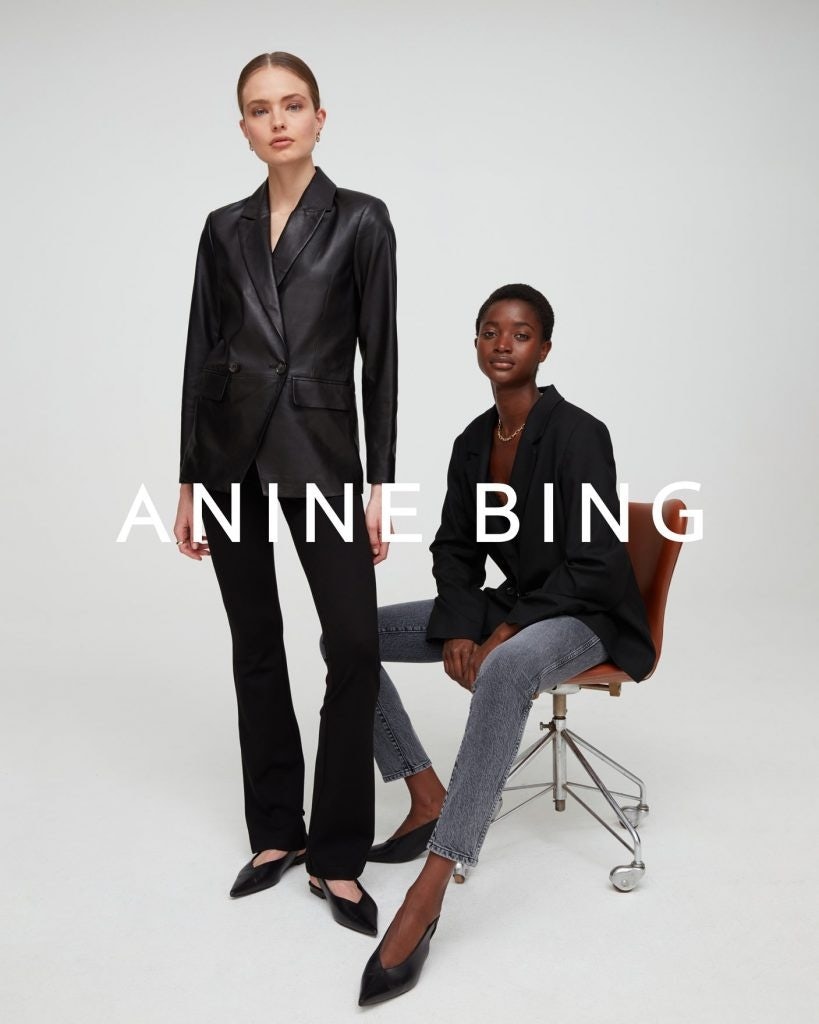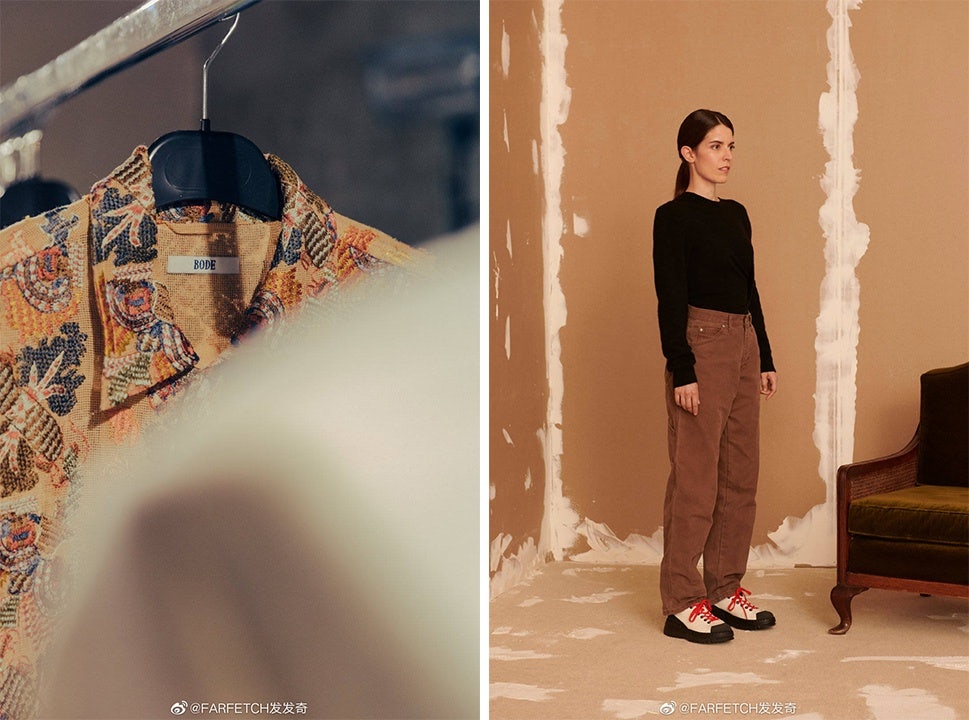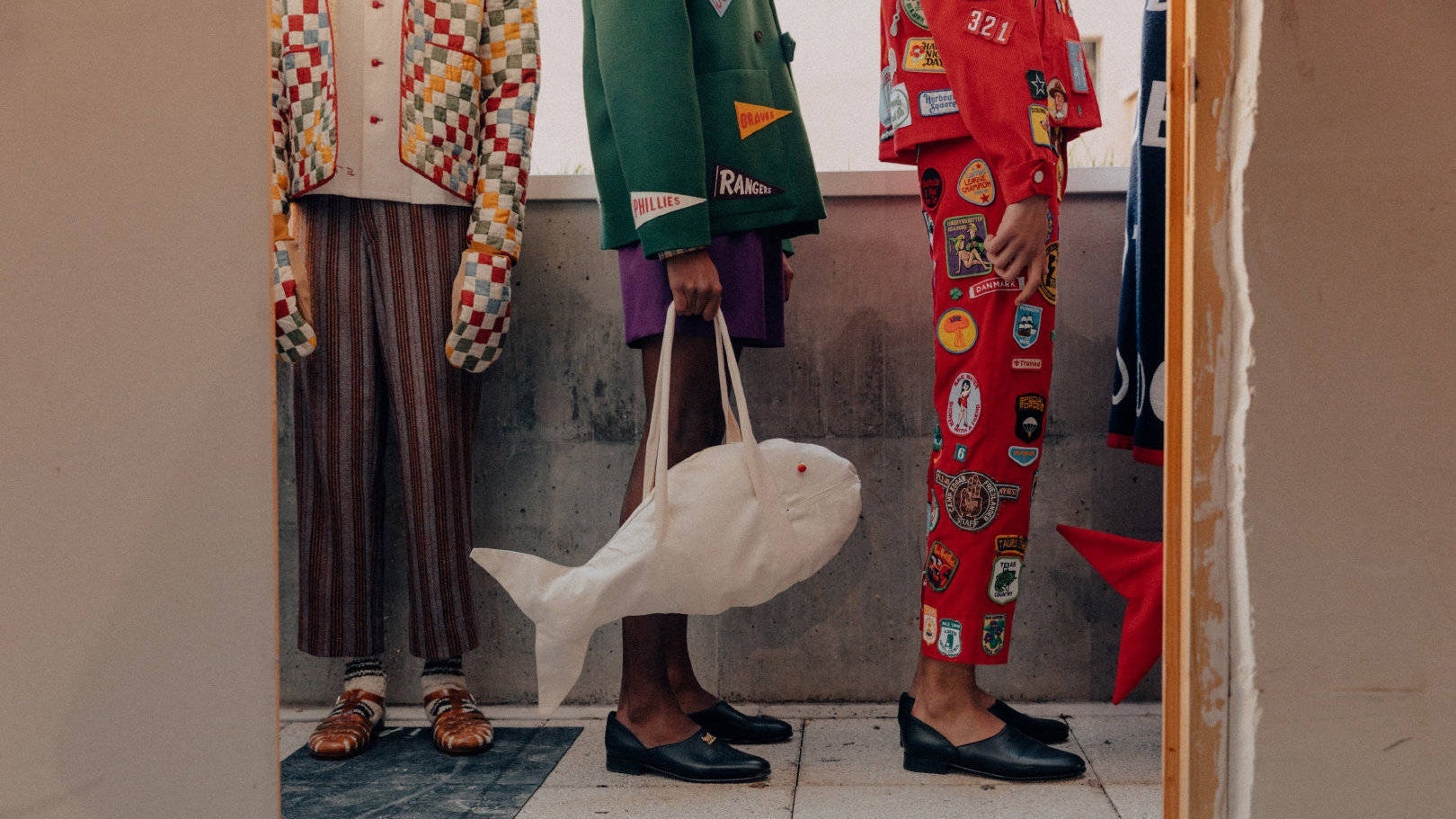Key Takeaways:#
- Two leading fashion groups — YNAP-owned Richemont and Farfetch — are in advanced talks for a potential deal, with Farfetch perhaps taking a minority stake to power YNAP with its technology.
- Local Gen Zers have shown a growing appetite for lesser-known designer labels on lifestyle platforms like Xiaohongshu.
- Fashion marketplace Farfetch, which entered China in 2017 and is backed by e-commerce giant Alibaba, may offer an interim gateway for small-size labels to test the waters of the local market.
After two decades, the luxury fashion industry is still without a single dominant e-commerce player. But there might be one soon. Two leading groups, Yoox-Net A Porter, an early adopter & leader of online luxury retail owned by Richemont, and Farfetch, the inventory-free marketplace founded by José Neves in 2007, are in advanced talks for a potential deal. If completed, the agreement would see Farfetch take a minority stake and use its technology to power YNAP.
The tie-up is seen as positive by most analysts. Mario Ortelli, the managing partner at the luxury M&A consulting agency Ortelli & Co., pointed out that both “are complementary and that will produce a synergy effect.” Farfetch will benefit from boosts to its customer base and supply of curated products. Meanwhile, YNAP will gain access to Farfetch's technology and may transition to a hybrid wholesale and marketplace system.
The growing threat from smaller rivals like Mytheresa, Luisaviaroma, and Ssense, is driving this coalition. Competitors have developed substantial businesses while major luxury brands and conglomerates have been focusing on their own DTC e-commerce channels. Kering Group decided to manage online sales in-house, withdrawing from YNAP in late 2018 to gain more control of its e-channels.
Given this heated online war, where does China feature? Farfetch's third-quarter 2021 financials show that the platform had a 23-percent year-on-year increase and 97-percent two-year growth. The mainland was identified as one of the key luxury markets generating that growth. Therefore, the Farfetch-YNAP opportunity may lie in offering emerging niche brands without established local presences to domestic consumers who cannot travel abroad.
Local Gen Zers have grown appetites for niche brands#
China has shifted from a status culture (purchasing heritage brands to display wealth) to niche and lesser-known brands quicker than expected, and local Gen Zers are driving that change. This generation has rejected traditional perceptions of garments as social symbols and shows an inclination for clothing as a tool of self-expression and individuality.
According to a Chinese market research agency, the size of China's independent designer fashion market was 8.1 billion in 2020 — an almost five-fold increase from 1.7 billion in 2011 and is expected to expand to 12.1 billion by 2025.
Jillian Xin, the buying director at LABELHOOD, confirmed this rising trend, stating, “Gen Z is much more open-minded towards trying new brands. They are more experimental and happy to mix and match between niche and established brands.” That can also be seen via their favorite lifestyle platform, Xiaohongshu, where searches for “niche brands” uncovered 840,000 related instances shared by users.
Therefore, the growing appetite of local shoppers for niche labels has become a huge opportunity for smaller players. But many emerging overseas labels like Musier Paris, Anine Bing, and Matériel, which enjoy a high number of UGC instances, are absent from this market and have been missing the chance to boost their revenue in one of the luxury’s biggest markets.

Leveraging online platforms to test the waters in China#
Still, the cost to operate in China can be unrealistic for niche businesses. For example, online luxury destination Tmall has an annual fee between 4000-9000, a deposit fee of between 1500-2500, and commissions of five percent — not to mention additional operational costs. “Usually, it demands brands have a team physically present in China with local expertise,” said Xin. But that doesn’t mean China is a lost battle for emerging designers.
Fashion marketplace Farfetch, which entered China in 2017 and is backed by the e-commerce giant Alibaba, may offer an interim gateway for small-size labels to test the waters in China's local market.

According to sources, the platform charges a commission fee of 25-30 percent on sales. Unlike Tmall, the percentage it takes is very high, swiping a remarkable margin from small business profits. However, the Chinese e-commerce’s annual charges are more suitable for established brands that have already built a loyal clientele locally and have high transaction volumes.
Still, there are upsides. As Ortelli stated, “it is difficult for a retailer to know Chinese consumer as well as Alibaba.” The luxury platform presents an ideal springboard for designers that don’t have stockists in Mainland China yet and wish to raise awareness, understand their potential in the country, and provide proof of sales to the local department or multi-brand stores to further expand into the market.
Watch out for potential pain points#
That said, online e-commerce platforms are a double-edged sword: They can be a niche label's greatest peril as well as its ally. On Xiaohongshu, users who have purchased small designer brands via Farfetch have complained about several issues, such as price confusion, a lack of sophisticated packaging, and lack of customer service.
Smaller businesses often have less knowledge of local currency and taxes, and given their size, rarely have a designated person to deal with customer service or even product packaging. However, the reputational damage that can cause often has lasting negative ramifications. Chinese consumers are very used to receiving immediate solutions from sellers when issues arise. But on Farfetch, the procedure is more complicated as the platform operates as a middleman and, in turn, contacts brands to resolve the matter. As such, impatient shoppers could spread negative feedback on social media.
Another issue that irks consumers is the inability to return and receive refunds. In China, shoppers are guaranteed a free exchange or return within seven days when making online purchases. With Farfetch, products must get returned in perfect condition, with exact reasons for the return, and buyers must absorb the shipping costs. That creates a barrier for consumers to try new products.
In light of the above, businesses must commit to third-party management to build a good image in one of the world's biggest luxury markets. For instance, placing QR codes within a package allows buyers to give feedback in exchange for coupons or other treats, which could be a way to accumulate consumer insights and develop deeper connections with domestic shoppers.
Given the local Gen-Z inclination for lesser-known labels, Farfetch and YNAP must offer solutions for those pain points to better support emerging designers. The COVID-19 outbreak has led consumers to purchase locally, but this shopping behavior will likely remain even after the pandemic. Therefore, if Farfetch-YNAP plans to dominate the online space, niche brands can offer the group a bright spot.



